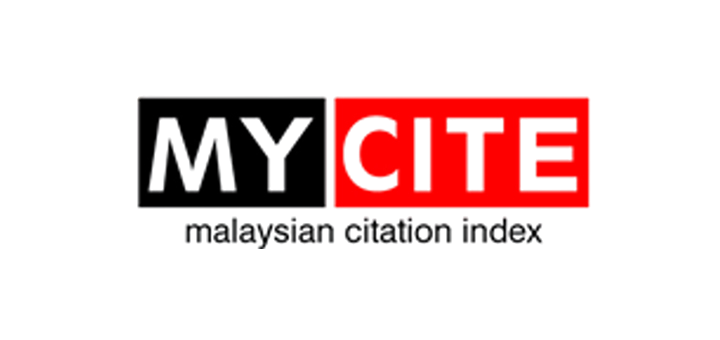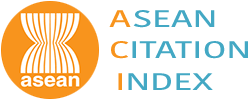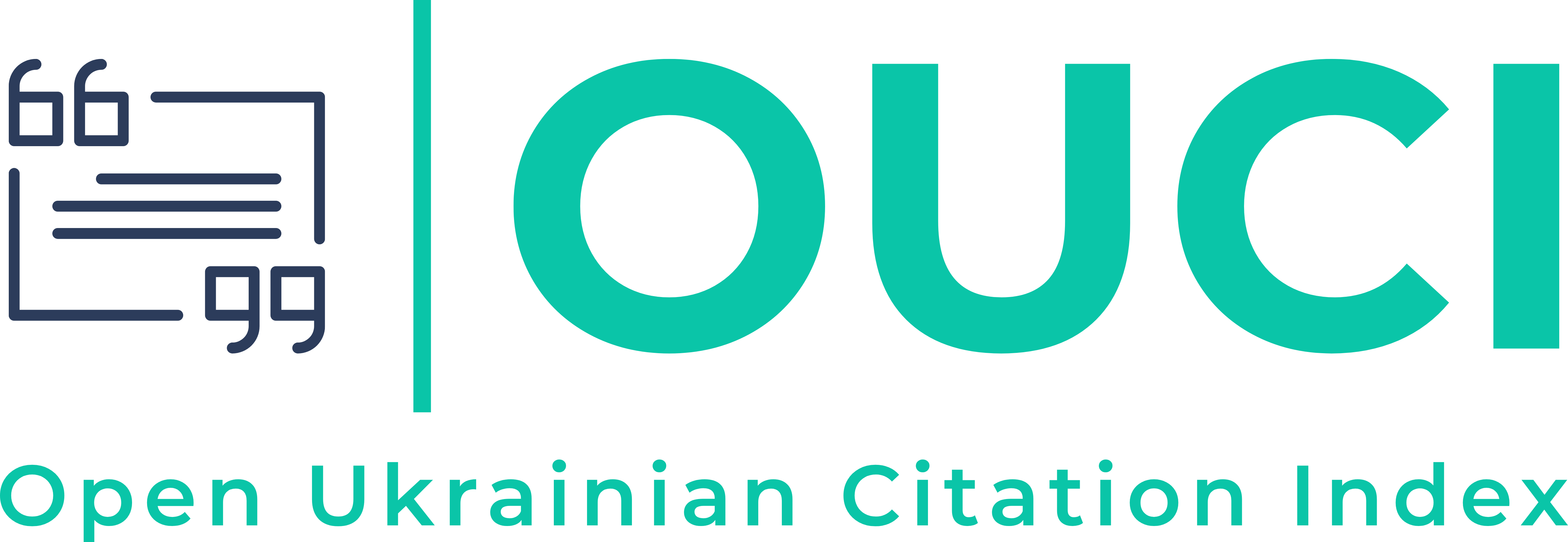Promoting Compliance with Sustainability Standards in Malaysian Palm Oil Industry through a Collection Centre Model
Abstract
This paper examines the development of a collection centre model for smallholders in the Malaysian palm oil industry. The model aims to ensure compliance with sustainability standards and improve the quality of palm oil production. The model involves several parties, including smallholders, contractors, collection centres, and mills. The requirements for compliance with the model are outlined, with an emphasis on labour regulations, traceability, and pre-grading of fresh fruit bunches. The Malaysian Palm Oil Board (MPOB) plays a crucial role in regulating the industry and issuing licenses for various activities. Several studies have been conducted on the environmental, financial, and innovative aspects of implementing no-deforestation, no-peat, and no-exploitation (NDPE) policies in the industry. The findings suggest that environmental performance and innovation are key drivers of economic value creation that promote NDPE policies. Attitude and awareness also play a significant role in supporting NDPE and engaging with ecopreneurial businesses. Increased awareness of sustainability has a positive effect on NDPE implementation but may also increase costs. Finally, the impact of palm oil on health, social and economic aspects, environment, and biodiversity has been reviewed in the Malaysian context. The collection centre model is a crucial step in ensuring compliance with sustainability standards and improving the quality of palm oil production. Further research is needed to explore the potential of this model for enhancing the sustainability of the palm oil industry.
Downloads
References
Abdul-Manan, A. F., Abdul-Rahman, A. R., Kusairi, M. S., & Salam, P. A. (2020). Developing a collection centre model for smallholders in the Malaysian palm oil industry: A sustainable approach. Journal of Cleaner Production, 266, 121923. doi: 10.1016/j.jclepro.2020.121923
Ahmad, N. H., Ishak, N. A., & Mamat, M. N. (2022). The influence of awareness on sustainability practices: A case study of a Malaysian palm oil company. Journal of Cleaner Production, 342, 130091.
Apriani, Y., Koeshendrajana, S., & Afiff, A. (2020a). Smallholder palm oil certification in Indonesia: A review of current status and challenges. Journal of Environmental Management, 254, 109783.
Apriani, Y., Vermeulen, S., & Budidarsono, S. (2020b). The challenges of RSPO certification for smallholders: A case study from Riau province, Indonesia. Land Use Policy, 99, 104934.
Aszahar, M. A., & Syahlan, S. (2018). Exploring the Malaysian sustainable palm oil (MSPO) certification system. Journal of Oil Palm Research, 30(3), 358-368.
Carlson, K. M., Curran, L. M., Ratnasari, D., Pittman, A. M., Singh, L., Purwanto, E., ... & Koenig, K. (2018). Committed carbon emissions, deforestation, and community land conversion from oil palm plantation expansion in West Kalimantan, Indonesia. Proceedings of the National Academy of Sciences, 115(1), 121-126.
Chiriacò, M. V., Noè, C., Matarazzo, A., & Bianchi, C. (2018). Sustainability in the palm oil industry: A review of literature and analysis of good practices. Journal of Cleaner Production, 179, 281-294.
Dan, F. K., Chew, T. L., Lee, C. K., Mohamad Zaini, L. H., & Nik Mohd Norfadzilah, N. M. (2018). Manual grading of oil palm fresh fruit bunches (FFB) using image processing technique. Journal of Oil Palm Research, 30(4), 583-594.
European Federation of Engineering Consultancy Association (EfECA). (2020). Towards Sustainable Palm Oil. European Federation of Engineering Consultancy Association. Retrieved from https://www.efeca.com/wp-content/uploads/2020/07/Towards-Sustainable-Palm-Oil-report-EfECA-2020.pdf
Hafizuddin-Syah, M. A., Idris, M. A., & Latif, A. (2018). Exploring the perception of Malaysian oil palm growers on MSPO certification scheme. Journal of Oil Palm Research, 30(1), 65-74.
Hanafiah, M. H., Abdullah, S., & Sairi, N. A. (2022). Sustainable palm oil production: A review on health, social, economic, environment and biodiversity aspects in Malaysia. Renewable and Sustainable Energy Reviews, 152, 111732.
Hasan, M. R., Uddin, M. N., & Othman, M. S. (2018). Smallholders' perception towards sustainable palm oil production in Malaysia. Forest Policy and Economics, 86, 50-57.
International Labour Organization (ILO). (2021). Labour standards in the palm oil sector. International Labour Organization. https://www.ilo.org/global/topics/palm-oil/labour-standards/lang--en/index.htm
Kumaran, P., Abdullah, N., & Idris, A. (2021a). Malaysian Palm Oil Industry: Government Policies, Regulations, and Role of Malaysian Palm Oil Board. In Palm Oil: Production, Processing, Characterization, and Uses (pp. 3-25). CRC Press.
Kumaran, P., Lim, S. H., & Sambanthamurthi, R. (2021b). Malaysian Palm Oil Board and Oil Palm Industry in Malaysia. Palm Oil: Production, Processing, Characterization, and Uses, 1-14.
Kumaran, T. V., Sulaiman, Z., & Loh, T. Y. (2021c). Regulation of the Malaysian oil palm industry. Palm oil: Production, processing, characterization, and uses, 79-100.
Maideen, S. A., Mohd-Nordin, N. A., & Hassan, M. S. (2022). The potential of ecopreneurial business in supporting no deforestation, no peat, and no exploitation (NDPE) policies. Journal of Cleaner Production, 330, 129488.
Majid, M. I. A., Mohd Nasir, N. A., Abdullah, N. A. G., & Hashim, N. (2021). The impact of Malaysia sustainable palm oil (MSPO) certification on the financial performance of Malaysian palm oil plantation companies. Journal of Cleaner Production, 309, 127208.
Malaysian Palm Oil Board. (n.d.). Malaysian Sustainable Palm Oil (MSPO) Certification Scheme. Malaysian Palm Oil Board. Retrieved from https://www.mpob.gov.my/mspo/index.php
Malaysian Palm Oil Board (MPOB). (2018a). Malaysian sustainable palm oil certification standard (MS2530: 2013) and certification requirements. Malaysian Palm Oil Board. Retrieved from http://www.mpob.gov.my/images/stories/mspo/pdf/MSPO%20Certification%20Requirements%20(Eng).pdf
Malaysian Palm Oil Board (MPOB). (2018b). Overview of the Malaysian oil palm industry 2018. Malaysian Palm Oil Board.
Malaysian Palm Oil Board (MPOB). (2018c). Palm Oil Industry in Malaysia: World's Second Largest Producer and Exporter of Palm Oil. Malaysian Palm Oil Board. Retrieved from https://www.mpob.gov.my/images/stories/2019/20190115_OPIS.pdf
Malaysian Palm Oil Board (MPOB). (2019). Traceability implementation in the Malaysian palm oil supply chain. Malaysian Palm Oil Board.
Malaysian Palm Oil Certification Council. (2022). The Malaysian Sustainable Palm Oil (MSPO) Certification Scheme. Malaysian Palm Oil Board. Retrieved from https://mpocc.mpob.gov.my/mspo-certification-scheme/mspo-supply-chain-certification-standard/
Mansor, M. N., Yusop, Z., Saad, M. S. M., & Ramli, N. (2018). MSPO certification and sustainability of Malaysian palm oil industry. Journal of Sustainability Science and Management, 13(1), 126-137.
Maretna, M. A., Kamal, M. M., & Rasli, A. M. (2021). RSPO participation, downstream industry development, and exporting decisions in Indonesian and Malaysian palm oil companies. Forest Policy and Economics, 133, 102546.
MSPO Supply Chain Certification Standard. (2022). Malaysian Sustainable Palm Oil (MSPO) Certification Scheme. Malaysian Palm Oil Board.
Roundtable on Sustainable Palm Oil. (2018). Principles & criteria for the production of sustainable palm oil. RSPO. Retrieved from https://rspo.org/about/sustainable-palm-oil
Ni, W., Singh, G., Goh, K. J., & Abdul-Manan, A. F. (2016). An assessment of the economic and environmental sustainability of Malaysian palm oil production: a case study of Johor state. Journal of Cleaner Production, 112, 4391-4400.
Ong, T. S., Fauzi, A. M., & Lee, C. H. (2019). Environmental performance, environmental innovation and financial performance: An empirical analysis of Malaysian palm oil manufacturers. Journal of Cleaner Production, 231, 1282-1291.
Rewathi, R. A., & Choy, W. K. (2020). The impact of Malaysia sustainable palm oil (MSPO) certification on the palm oil industry. Forests, 11(8), 813.
Shahida, S., Amran, A., Baharum, A., & Syed Hussain, S. (2019). The impact of Malaysia sustainable palm oil (MSPO) certification on profitability of listed oil palm plantation companies in Malaysia. Journal of Sustainability Science and Management, 14(1), 1-14.
Wahab, M. A. (2019). Human rights and corporate social responsibility in the palm oil industry: A case study of Sime Darby. Business and Society Review, 124(4), 515-543.
Wicke, B. (2019). RSPO Certification of Independent Smallholders. In Smallholders and the Governance of Forests and Agroforests in the Humid Tropics (pp. 209-226). Springer, Cham.
Zainon, O., Azman, A., Nor, M. H. M., & Yusoff, M. K. (2017). Quality improvement of fresh fruit bunches through effective handling techniques. Journal of Oil Palm Research, 29(4), 489-499.

















